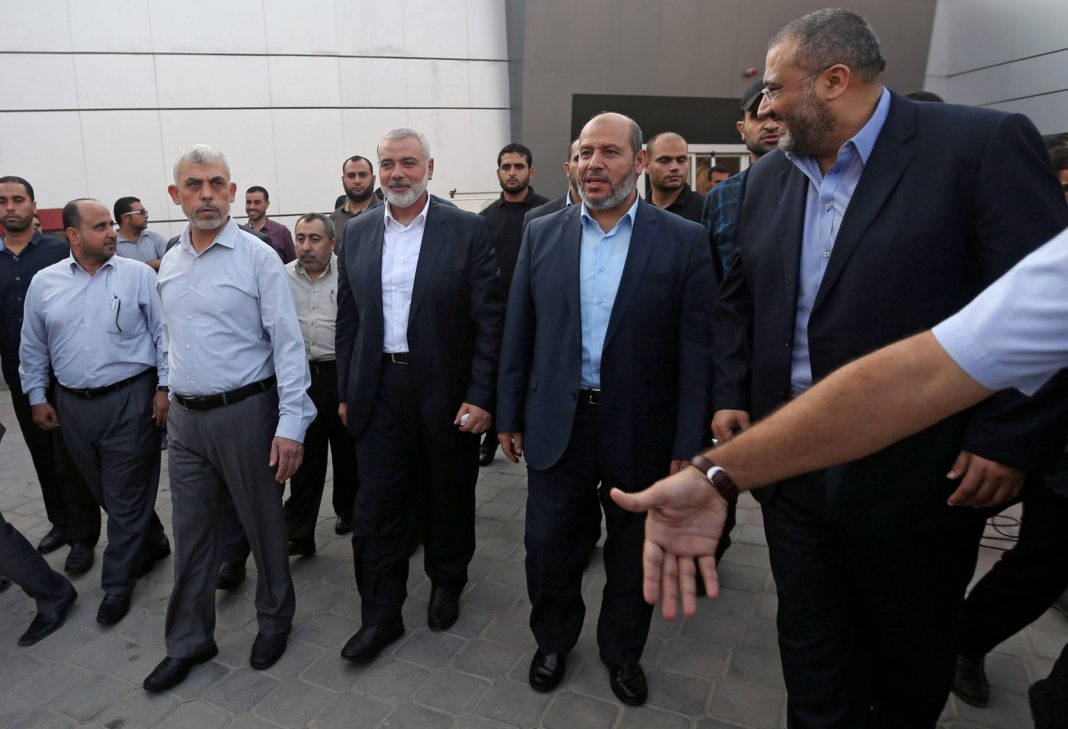In a statement Monday, Hamas stressed it “strongly condemns the attempts of the ICC Prosecutor to equate victims with aggressors by issuing arrest warrants against a number of Palestinian resistance leaders without legal basis”.
The ICC prosecutor, Karim Khan, issued requests for arrest warrants for Yahya Sinwar, Hamas’ military leader in Gaza, as well as two other top Hamas figures — Mohammed Diab Ibrahim al-Masri, the leader of the Al Qassem Brigades and better known as Mohammed Deif, and Ismail Haniyeh, Hamas’ political leader.
Hamas said that arrest warrants for Israeli Prime Minister Benjamin Netanyahu and Defense Minister Yoav Gallant over Israel’s military campaign in Gaza had come “seven months late”, during which time “the Israeli occupation committed thousands of crimes against Palestinian civilians, including children, women, doctors, journalists, and the destruction of private and public properties, mosques, churches, and hospitals”.
The prosecutor should have issued arrest warrants against “all responsible leaders of the occupation who gave orders, and soldiers who participated in committing crimes”, according to the court’s statutes, the militant group added.
“Hamas calls on the ICC Prosecutor to issue arrest warrants against all war criminals among the occupation leaders, officers, and soldiers who participated in crimes against the Palestinian people, and demands the cancellation of all arrest warrants issued against Palestinian resistance leaders.”
Located in The Hague, Netherlands, and created by a treaty called the Rome Statute first brought before the United Nations, the ICC operates independently. Most countries – 124 of them – are parties to the treaty, but there are notable exceptions, including Israel, the US and Russia.
That means that if the court grants the application made by ICC prosecutor, and issues arrest warrants for the five men, any country that is a member would have to arrest them and extradite them to The Hague.
Under the rules of the court, all signatories of the Rome Statute have the obligation to cooperate fully with its decisions. This would make it extremely difficult for Netanyahu and Gallant to travel internationally, including to many countries that are among Israel’s closest allies – including Germany and the United Kingdom.
